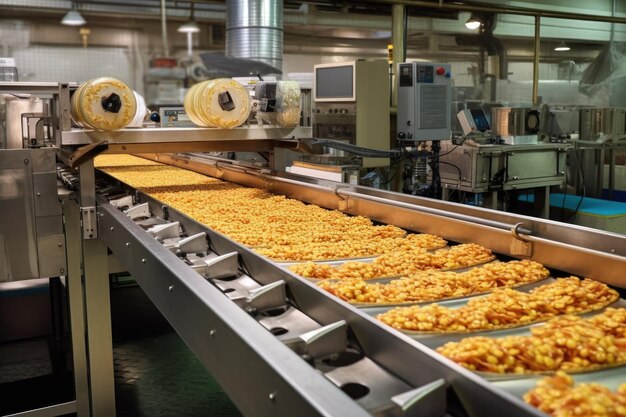Insects such as mice, flies, cockroaches, and others should not be allowed in a facility used for manufacturing, processing, or storing food. Even if bugs can manage to build a home in your business, you can drive them out by working with a pest control company that is knowledgeable about both food safety and integrated pest management (IPM).
If pests at your business in Ferndale compromise food supplies or, worse yet, harm your reputation, you may have a significant issue. Here are some suggestions for an efficient pest management program in manufacturing, warehouse, food processing, and audited facilities when working with a Ferndale Pest Control supplier.
Ways to protect your food plants and warehouses from pests
Get the location checked by the professionals
The time spent thoroughly assessing the amenities during each servicing visit is well worth it. Regular inspections of the building structure, office, waste room, loading docks, processing plants, restrooms, and other areas will be carried out by an authorized pest professional. The Service Specialist will make a note of any favorable conditions and signs of a pest infestation to make sure you identify a potential issue before it gets worse.
Check and fix the surrounding places where pests can enter
Maintain the functionality of your floor tiles, loading docks, windows, doors, screens, and exhaust vents. Any fractures or openings in your building provide pests an opportunity to enter and make your space unsafe. By sealing gaps and crevices, shutting doors, covering vents with mesh wire, and fixing broken floor drains or tiles, you can avoid pests from entering your delicate environment.
Focus on sanitation
Putting more of a focus on facility sanitation will reduce bug problems. Eliminating potential pest harborage locations in your facility can be accomplished by executing a regular cleaning program that targets the hard-to-reach regions. Hard-to-reach places, dumpster rooms/pads, basement drains, staff locker rooms, storage spaces, and ceiling voids should all be on the cleaning schedule.
Monitor your storage spaces
The entire room or just one container of stored product pests might be identified through regular monitoring. Find out from your pest control supplier about using pheromone traps, changing your stock, and visually examining delivery shipments.
Stay connected with your pest control service expert
It is essential to communicate with your pest control specialist. In the case that you are unavailable during their visits, ask them to get in touch with you later to discuss any issues. Pest Service Specialists often utilize email reports and pictures to “inform” their contacts about items in their workplaces.
Top food-producing facilities that usually require pest control strategies:
High-quality food processing plants
These establishments turn raw food ingredients into finished goods. They often have a number of locations that require pest prevention, such as loading docks, packing sections, storage spaces, and manufacturing lines.

Warehouses and storage facilities of food factories
These facilities store food items before they are distributed. Goods that are stored could get contaminated or damaged from pest infestation. To stop infestations in storage spaces, proper measures for pest control must be taken.
Restaurants and food service places
With the goal of avoiding infestations and maintaining cleanliness, pest control procedures are necessary in the kitchens, dining areas, storage facilities, and waste management areas.
What are the consequences of ignoring the pest control?
In the food industry, ignoring pest control can have a variety of adverse impacts, such as:
Contamination of food products
Food product contamination may result from direct contact with pests, as well as from their droppings, feces, hair, and the infections they carry. Customers might be at risk for foodborne illnesses as a result of this exposure.
Compromised food quality and safety
Food safety and quality are compromised because pests bring viruses, bacteria, and other diseases into the places where food is handled and stored. Recalls of goods, a decrease in consumer trust, and harm to the reputation of food companies are potential effects of this.






